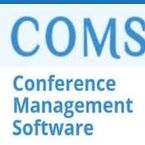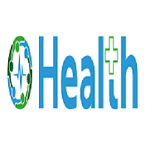Chronic Kidney Disease (CKD) is a long-term condition marked by the gradual and irreversible loss of kidney function, representing a major global public health challenge. This session provides an in-depth overview of CKD, emphasizing early diagnosis, accurate staging, and timely intervention to slow disease progression. Discussions will cover major risk factors such as diabetes, hypertension, cardiovascular disorders, and lifestyle-related causes, along with effective screening and monitoring approaches. The session highlights current clinical guidelines for medical management, including blood pressure control, glycemic management, and renoprotective therapies. Attention is also given to the management of CKD-associated complications such as anemia, mineral and bone disorders, electrolyte imbalances, and cardiovascular risks. Nutritional management, patient education, and strategies to improve quality of life are integral components of this session. Emerging research, novel therapeutic agents, biomarkers, and personalized treatment approaches will also be explored. The session aims to enhance clinical practice by equipping healthcare professionals with evidence-based strategies to improve long-term outcomes and reduce the burden of chronic kidney disease.
Hypertension is both a leading cause and a major consequence of kidney disease, significantly influencing disease progression and cardiovascular outcomes. This session focuses on the complex relationship between elevated blood pressure and renal dysfunction. Discussions include the pathophysiology of hypertension in kidney disease, accurate blood pressure measurement, and risk stratification. Evidence-based treatment strategies such as lifestyle modification, pharmacological therapy, and renin–angiotensin–aldosterone system blockade are emphasized. The session also covers resistant hypertension, secondary causes, and blood pressure targets in special populations including CKD and transplant patients. Effective hypertension management as a cornerstone of kidney protection and cardiovascular risk reduction is a key theme throughout the session.
Diabetic nephropathy is one of the most common causes of chronic kidney disease and end-stage renal failure worldwide. This session provides a detailed understanding of the mechanisms linking diabetes and kidney damage, with emphasis on early detection and prevention. Topics include screening strategies, microalbuminuria assessment, and glycemic control optimization. The session highlights current and emerging therapies such as renoprotective agents, SGLT2 inhibitors, and novel pharmacological approaches. Management of associated complications and strategies to slow disease progression are discussed. Patient education, lifestyle interventions, and multidisciplinary care models are also emphasized to improve long-term renal and metabolic outcomes.
Kidney diseases in children present unique challenges due to developmental and congenital factors. This session focuses on common pediatric renal conditions, including congenital anomalies, hereditary disorders, nephrotic syndrome, and acute kidney injury. Early diagnosis, age-appropriate treatment strategies, growth and development considerations, and long-term follow-up are emphasized. Sessions will also cover family-centered care, transition to adult nephrology, and strategies to improve adherence and outcomes in pediatric patients. This session equips clinicians and pediatric specialists with actionable strategies for effective renal care in children.
Kidney dysfunction in critically ill patients is a frequent complication with serious consequences. This session explores acute kidney injury in ICU settings, sepsis-associated renal injury, and multi-organ failure. Participants will learn evidence-based strategies for fluid management, electrolyte and acid–base balance, and continuous renal replacement therapies (CRRT). Emphasis is placed on early recognition, risk assessment, and multidisciplinary collaboration to improve survival and minimize long-term renal damage. Practical case studies and real-world approaches will help participants apply knowledge directly in critical care settings.
Personalized medicine is transforming the landscape of kidney care. This session examines cutting-edge therapies, including biologics, gene-based treatments, and targeted drug delivery systems. Attendees will learn how to tailor therapy based on genetic, molecular, and clinical profiles to maximize efficacy and minimize side effects. Practical case examples demonstrate the application of precision medicine in CKD, AKI, and transplant patients. Future directions in individualized renal care and innovative treatment strategies are discussed to equip clinicians with the knowledge to implement advanced therapies.
Preventing kidney disease is as important as treating it. This session explores population-based strategies, early screening programs, lifestyle interventions, and community awareness initiatives. Participants will learn how public health programs, policy initiatives, and preventive healthcare models can reduce the global burden of CKD and related complications. The session also highlights risk reduction strategies for high-risk populations, emphasizing actionable measures that healthcare providers can implement in clinical and community settings to improve outcomes.
Kidney disease in older adults presents unique challenges due to comorbidities, physiological changes, and increased vulnerability. This session focuses on diagnosing, managing, and monitoring renal disorders in elderly patients. Polypharmacy, frailty, and ethical decision-making are explored, alongside strategies to maintain quality of life and independence. Participants will learn approaches for individualized treatment, medication adjustment, and risk reduction in geriatric populations, ensuring safe and effective kidney care in aging patients.
The complex interplay between heart and kidney function can worsen patient outcomes if not managed appropriately. This session examines cardiorenal syndrome, its classification, pathophysiology, and clinical impact. Participants will learn integrated strategies for managing patients with concurrent heart and kidney disease, including pharmacologic management, fluid balance, and lifestyle interventions. Multidisciplinary approaches and real-world case discussions illustrate how coordinated care improves outcomes and reduces hospitalization rates.
Nutrition is a cornerstone of kidney health and disease management. This session covers dietary interventions for patients across all stages of kidney disease, including protein, sodium, potassium, and phosphate management. Participants will learn strategies for individualized meal planning, nutritional support during dialysis, and prevention of malnutrition and metabolic complications. The session emphasizes practical, evidence-based guidance to support patient adherence, enhance quality of life, and slow disease progression.
Kidney diseases are increasingly recognized as having significant genetic contributions, from congenital anomalies to hereditary nephropathies. This session explores advances in renal genetics, including gene mutations linked to CKD, polycystic kidney disease, and rare hereditary disorders. Participants will learn how genetic testing can guide early diagnosis, risk assessment, and personalized treatment plans. Practical strategies for integrating genetic insights into routine clinical practice are discussed, including family screening, counseling, and ethical considerations. Emphasis is placed on how precision medicine combined with genomics is shaping individualized kidney care, improving patient outcomes, and preventing disease progression.
Autoimmune and immunologically mediated kidney diseases, such as lupus nephritis, IgA nephropathy, and vasculitis, pose diagnostic and therapeutic challenges. This session provides a comprehensive understanding of immune system involvement in renal pathology. Discussions cover early detection through serological markers, biopsy interpretation, and disease monitoring. Evidence-based management strategies, including immunosuppressive therapies and novel biologics, are emphasized. The session also explores long-term monitoring, relapse prevention, and the balance between efficacy and adverse effects. Attendees gain insights into tailoring treatments to individual patient profiles for optimal disease control.
Kidney stones are a common and recurrent renal disorder with significant morbidity. This session focuses on the pathophysiology, risk factors, and prevention strategies for urolithiasis. Participants will learn about the latest diagnostic modalities, including imaging and metabolic evaluation, as well as advanced treatment options such as minimally invasive surgery, lithotripsy, and pharmacologic management. Nutrition, hydration, and lifestyle modifications for recurrence prevention are also discussed. The session aims to equip clinicians with comprehensive knowledge to manage acute episodes, prevent recurrence, and improve patient quality of life.
Cancer therapies can significantly affect kidney function, leading to acute or chronic injury. This session focuses on the emerging field of onco-nephrology, addressing renal complications from chemotherapy, immunotherapy, and targeted agents. Participants will learn to balance cancer treatment efficacy with kidney protection, manage drug-induced nephrotoxicity, and monitor high-risk patients. Evidence-based strategies for hydration, dose adjustment, and renal replacement therapy are discussed. The session highlights interdisciplinary collaboration between oncologists, nephrologists, and critical care specialists to optimize both renal and oncologic outcomes.
Technology is transforming the diagnosis, monitoring, and treatment of kidney diseases. This session explores AI-driven decision support, predictive analytics for CKD progression, remote monitoring, and digital tools for dialysis and transplant management. Participants will learn how data integration, machine learning, and wearable devices are enhancing patient outcomes and optimizing healthcare delivery. Case studies demonstrate practical applications, including early detection, risk stratification, and personalized treatment planning. This session prepares nephrology professionals to leverage technology for smarter, more efficient, and precise kidney care.
Kidney infections and urinary tract disorders are common conditions that, if left untreated, can lead to serious complications including sepsis and long-term kidney damage. This session provides a comprehensive overview of bacterial, viral, and fungal infections affecting the kidneys, with a focus on diagnosis, treatment, and prevention. Participants will learn about risk factors, antibiotic stewardship, imaging and laboratory investigations, and management strategies for recurrent or complicated infections. Special attention is given to urinary tract obstruction, vesicoureteral reflux, and strategies to preserve renal function. Case discussions highlight real-world approaches, emphasizing timely intervention and integrated care for improved patient outcomes.
Acute renal emergencies require rapid assessment and intervention to prevent irreversible damage and life-threatening complications. This session focuses on sudden renal failure, electrolyte disturbances, hyperkalemia, severe dehydration, and other urgent kidney-related conditions. Participants will gain practical knowledge on early recognition, triage, and evidence-based interventions, including fluid resuscitation, renal replacement therapy, and monitoring strategies. The session emphasizes multidisciplinary coordination, critical decision-making, and real-world case studies to enhance preparedness in managing acute kidney complications effectively and safely.























